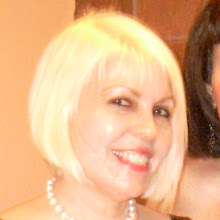I can identify with The Girl Who Loved Tom Gordon, because on my way home from the residency, I got lost in the bowels of Washington DC at midnight. I had no earthly idea of where I was other than the fact that I was in a very bad area. I would have almost rather faced the monster in the forest with the horns than the crack dealers hanging out on the corner. But just as Tricia found her fence post, I found a cop in a 7-11 who pointed me in the right direction, and I was on my way to the eastern coast of Maryland.
Here is a piece of synchronicity: At 1 AM driving through a god-forsaken stretch of nothingness on my way to Smith Island, I located Art Bell's talk show on AM radio. He interviews UFO people, etc. His guest for the evening was Father Malachai Martin, world-renowned exorcist and the person I named my book after. I thought that was a rather good omen since I was on my way to Smith Island to do research for my book.
But, back to The Girl Who Loved Tom Gordon, I found that I read this book very differently because it was one of my reading list books. I paid a great deal of attention to viewpoint. This is written primarily in the girl's viewpoint, yet we have an omniscient narrator who tells us in the first paragraph that at ten o'clock she was sitting in her mother's Dodge Caravan and by eleven she was lost in the woods. This narrator also tells us when she makes very bad directional mistakes, that the search party is looking in entirely the wrong direction, and that some evil, horned monster is watching her and waiting for her to ripen before it pounces.
At the very end of the book, the POV alternates between Tricia and the man who rescued her.
These switches in viewpoint are very effective, because through the narrator, we know how bleak the outlook is for her recovery and we know that the horned monster is lurking. So, what is the POV in this story? Third person? Limited omniscient?
The book has a very strong sense of place and detailed sensory information. I did find myself zoning-out during the sections about baseball, because I'm not a sports fan, but I could relate to the idea of putting your attention on a pleasing subject in order to get through a rough time.
I do believe the theme of this book is facing your fears. Once Tricia confronted the wasp-god, she was able to defeat him by hitting him between the eyes with her walkman, using an exaggerated pitching motion.
To be continued . . . Sally

